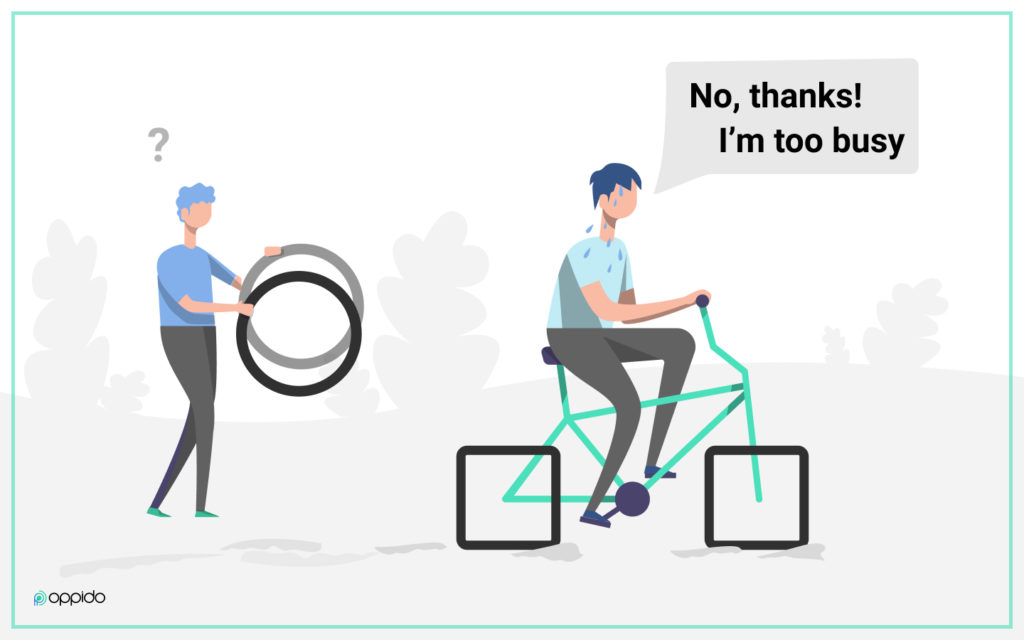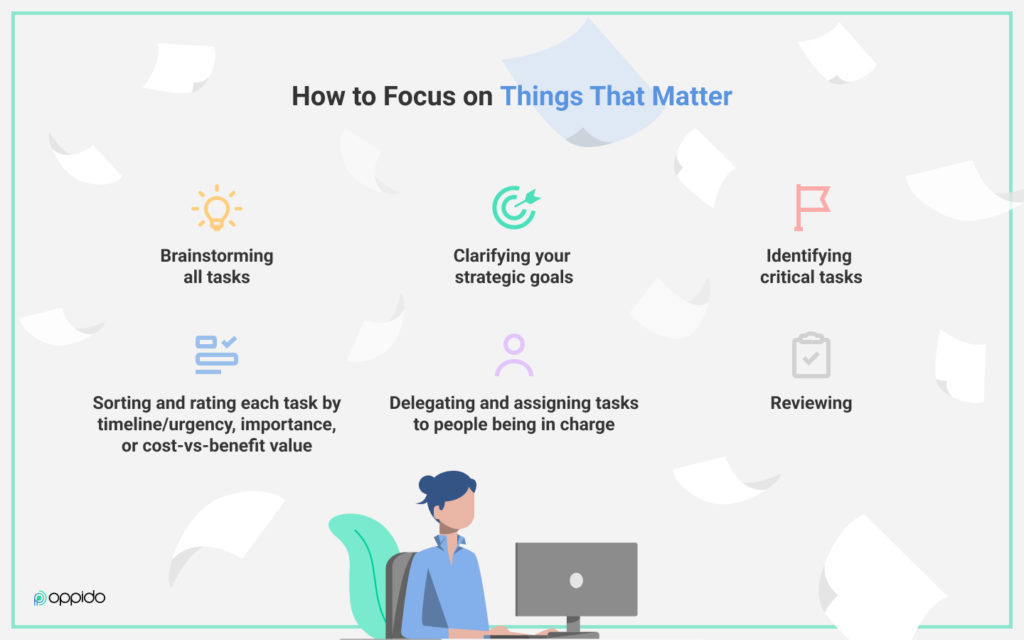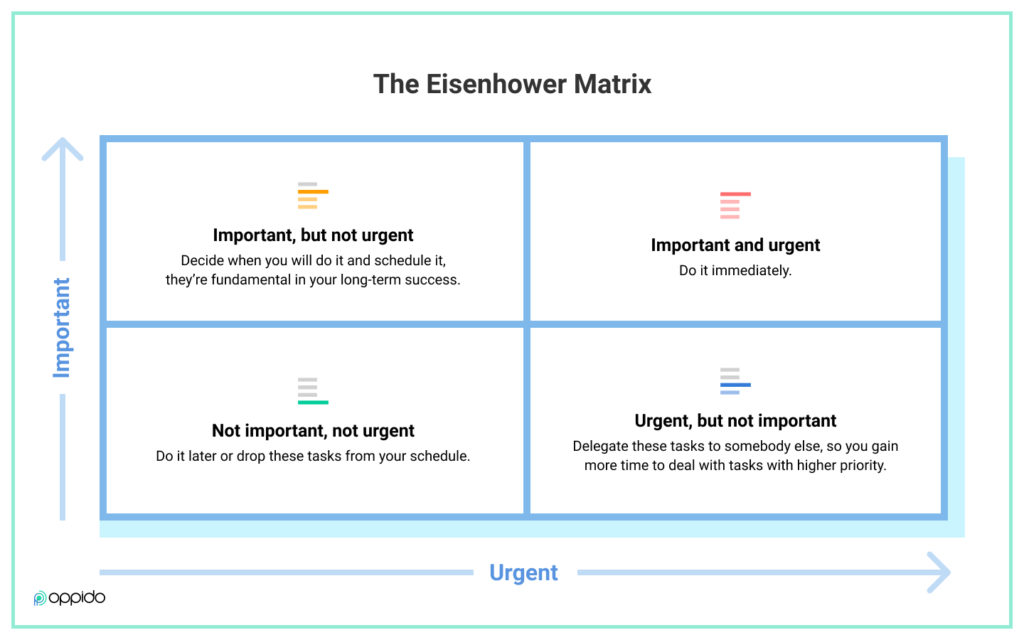Sometimes it might seem impossible to organise your tasks if they’re swimming all around. If you’re like us, you constantly wish to have few more hours available, or minutes at least. Until we find a way to inflate time, we have to stick with effective time management. Fortunately, time management is a comprehensive skill we can adopt over time. The more we cultivate it, the sooner we master it. All we need is to be persistent and know the proper techniques.
There is often a big gap between what we plan and what we really manage to do. Either we underestimate how long tasks will take, or our time is reduced by unforeseen events like our colleague not submitting his materials (i.e., data from your colleagues for weekly review), so we need to redouble our effort or miss the deadline.
Marketing is a creative endeavour, and the majority of people don’t work creatively under stress. Thus, managing time wisely and effectively is vital to withstand pressure and achieve your business or personal goals with less effort and better outcomes.

How to Focus On Things That Matter
When it comes to prioritisation, sometimes we tend to over-prioritise, so we have this never-ending to-do list with the most urgent deadlines for each high-priority task. But here comes the point; if something is urgent, it doesn’t mean it must be important. And vice versa. Prioritisation should help you to be in control of your time.
I am definitely going to take a course on time management…just as soon as I can work it into my schedule.
Louis E. Boone
Prioritisation is about defining an order of tasks that allows you to complete the most significant amount of important work within a given timeline. Sometimes that means starting with seemingly unimportant tasks that “unlock gates to higher productivity” – i.e., final-checking a brief for a campaign for next month so that your colleagues can start working on it. By doing this, you can limit the amount of “last-minute stress” in the future.

How to Prioritise When Everything Is a Priority
Of course, sometimes it’s exhausting to optimise our decision-making process. The problem is, we often prioritise the wrong tasks. And sure, we do; we’re all human! However, even if we set our priorities poorly, there is still a good chance that some of the tasks will be delivered properly. On the other hand, when we do not prioritise at all, we probably end up burning out. Thus, whether you want to prioritise your personal or business goals, the right methods or time management tools always come in handy. Such tools allow you to work on meaningful tasks that can be later leveraged for other projects.
I can’t even count how many time management apps and tools are available on any app store. Most of them are free; however, more comprehensive ones need to be upgraded to Premium. We recommend Todoist, TimeTree, Calendar, MindNode or Pocket. However, what works for us may not work for you. It’s all individual and depends heavily on your changing needs. Being overwhelmed by hundreds of apps and not knowing which one to choose is definitely not what we miss in our lives. Try some of the apps and look for the perfect one that meets your particular requirements. It’s also possible you end up jotting in a classic paper notebook or calendar, which can boost your creativity level, by the way.
Let our advance worrying become advance thinking and planning.
Winston Churchill
The Pareto Principle
One of the most known techniques to manage your priorities is the Pareto rule. It says that anybody who tries to plan their tasks optimally should consider that roughly 20% of the time spent on a job leads to 80% of the results. This principle shows us how to distinguish the project’s best assets to create maximum value efficiently. It helps you realise that the majority of results come from a minority of inputs. For example, fine-tuning every detail on a first-draft copy will most probably be poorly used time. The key is to understand that each unit of work or time doesn’t contribute the same amount, so you should focus on activities that generate the most results.
The Eisenhower Matrix
The Eisenhower Matrix is a perfect way to organise your priorities when working on a new project or finding yourself burdened with stress and lack of time. With this method, you will learn to differentiate between what is important and what is urgent. Urgent tasks are things that you need to react to right away, such as emails or phone calls. Important tasks contribute to the long-term mission, vision and goals.
This way, you create a four-quadrant box that separates your tasks to:

It’s a good idea to combine various approaches at the same time. For instance, using the Getting Things Done method, you can sort your tasks according to which ones are attainable in two minutes and those that are not. Or, according to Warren Buffett, you can make a list of tasks beginning with the one on the very top, probably with the highest priority, and go on only when you have completed it. Even when prioritising, be creative and open-minded. Think up your own prioritisation principle and be proud of it!
Personal vs Business Prioritisation
As a marketer, you immediately learn there is always more work to be done. All your marketing projects need to get results, but the thing is, how do you choose the right mix of all tasks that have the most significant impact on strategy success? Consider there is a massive difference between your personal prioritisation and team project prioritisation. Sometimes you have to work on a task that is not important for you, but it’s of great importance for the team. And not delivering it means your team will get stuck. Knowing how to prioritise your marketing assignments is paramount to be able to scale your business.
To keep organised, we recommend our marketing management system Oppido. Oppido automatically prioritises all team members’ tasks according to urgency and importance, so you get a workable and perfectly arranged list of all campaigns and initiatives. It also allows you to structure and visualise your ideas, plans, budget, and results. Oppido is already integrated with various analytic tools, and our development team is ready to add another functionality – integration with personal prioritisation tools.
Please feel free to share which tool is your favourite one!
It’s Always About Your Approach
One thing that truly matters is that you can’t fall for one set of prioritisation rules. Stick with the one which motivates you and helps you stay productive. If you suddenly find yourself being reactive, worry not and move on to a better system helping you on your way. Time management allows you to stay focused. But beware; the reality rarely lives up to the plan. Thus, don’t feel stress or anxiety about all the things you haven’t gotten done. Once you learn how to manage time wisely, you know you’ve set your priorities right and done the best you can. So, don’t let your desktop or calendar bully you and create the space to think and stay on top of things.
The bad news is time flies. The good news is you’re the pilot.
Michael Altshuler
Further reading:
